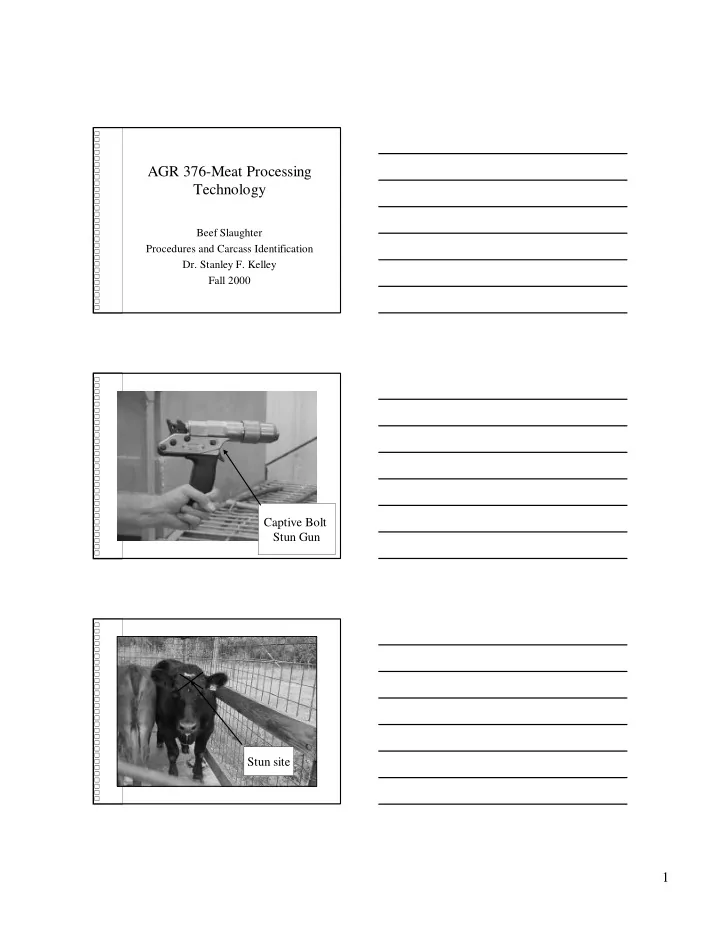

AGR 376-Meat Processing Technology Beef Slaughter Procedures and Carcass Identification Dr. Stanley F. Kelley Fall 2000 Captive Bolt Stun Gun Stun site 1
Stun site Sticking 3-3.5% of live wt. is lost as blood Sticking severs Jugular Vein and Carotid Artery 2
Removal of head between the Atlas and Axis Vertebrae Atlas joint Fore shank- removed between carpals and metacarpals Hind shank- removed between tarsal and metatarsals 3
Cattle are laid in a cradle for skinning Weasand Rod- used to separate the weasand from the Trachea Rodding the weasand 4
Weasand: (esophagus) is striated muscle Trachea- notice the cartilage rings Weasand: is tied off to prevent rumen contents from contaminating the carcass Sweet Bread: (Thymus Gland) located around the trachea and esophagus in the throat area 5
Bung Bunging: separates the rectum and colon from the pelvic cavity Evisceration Removing viscera 6
Trachea Lungs Heart Pluck Lungs 7
Heart Trachea Splitting the carcass down the vertebral column allows for more rapid chilling and easier handling 8
Can you identify the four vertebral regions? The four vertebral regions Sacral Lumbar Thoracic Cervical 9
Washing the carcass to remove contamination Pizzle Eye: Attachment site of penis Gracilis Muscles Heifer: Steer: Bean-shaped Diamond-shaped 10
Cod Fat is lobular… “looks like grapes” Udder fat is smooth Cod Fat vs. Udder Fat Udder Cod 11
Can you identify the sex of this carcass? Gracilis muscle Aitch bone Heifer Carcass -Bean-shaped Gracilis muscle Udder Fat -Flat aitch bone -Udder fat Can you identify the sex of this carcass? 12
Steer Carcass Diamond shaped -Diamond-shaped Gracilis muscle Gracilis muscle -Pizzle Eye -Cod Fat Pizzle Eye Curved Aitch Bone Lobular Cod Fat 13
Recommend
More recommend